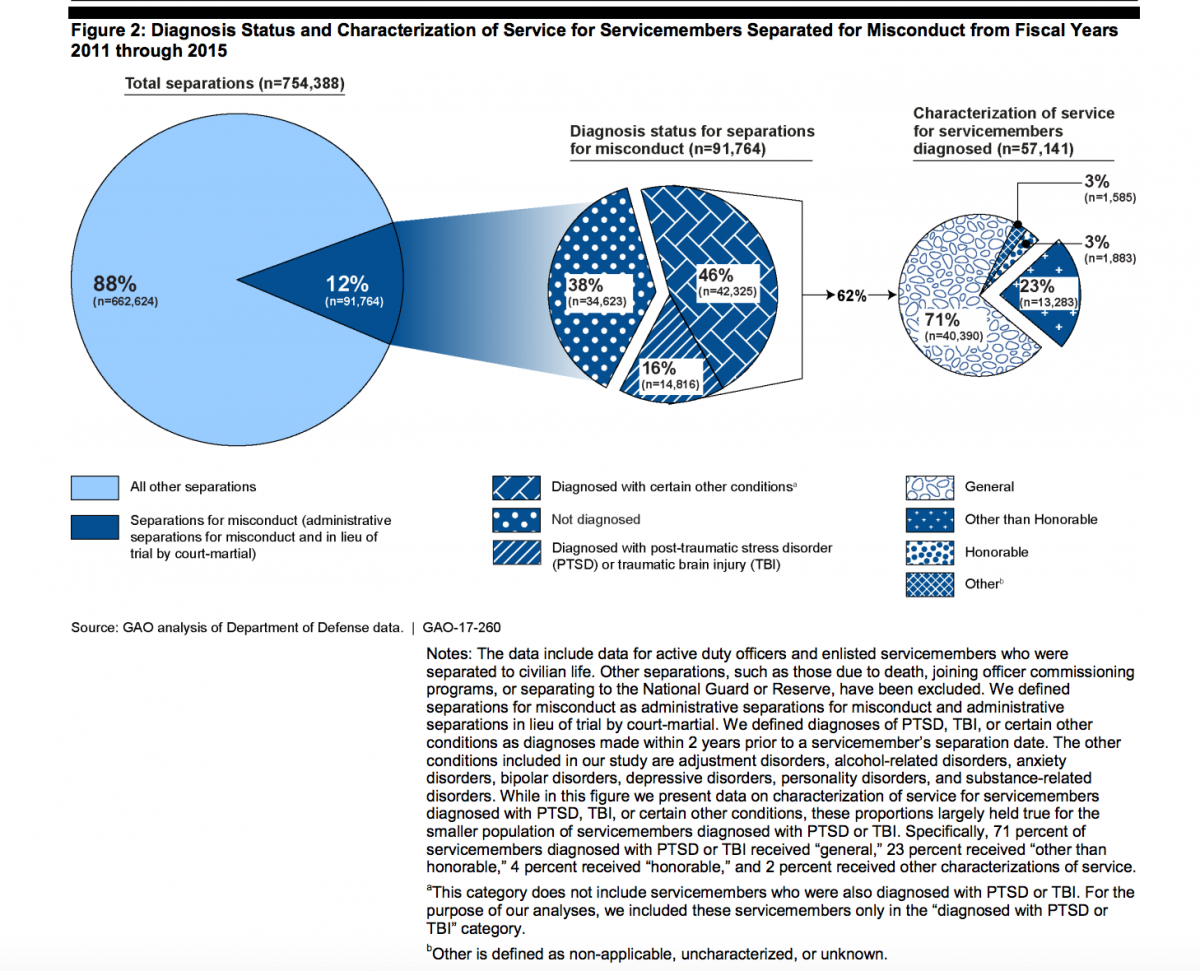By the Numbers - May 22, 2017
62%
The percentage of Service members who were separated from the military for misconduct from FY 2011 through 2015 who "had been diagnosed within the 2 years prior to separation with post-traumatic stress disorder (PTSD), traumatic brain injury (TBI), or certain other conditions that could be associated with misconduct," according to a new report from the Government Accountability Office (GAO) -- DOD Health: Actions Needed to Ensure Post-Traumatic Stress Disorder and Traumatic Brain Injury Are Considered in Misconduct Separations. An "other than honorable" discharge may result in a former Service member being ineligible for VA health benefits.
The GAO found that "not all of the military services have consistent policies in place to address the impact of these disorders on misconduct separations," and recommends that they "address inconsistencies in their separation policies."

62%
The percentage of Service members who were separated from the military for misconduct from FY 2011 through 2015 who "had been diagnosed within the 2 years prior to separation with post-traumatic stress disorder (PTSD), traumatic brain injury (TBI), or certain other conditions that could be associated with misconduct," according to a new report from the Government Accountability Office (GAO) -- DOD Health: Actions Needed to Ensure Post-Traumatic Stress Disorder and Traumatic Brain Injury Are Considered in Misconduct Separations. An "other than honorable" discharge may result in a former Service member being ineligible for VA health benefits.
The GAO found that "not all of the military services have consistent policies in place to address the impact of these disorders on misconduct separations," and recommends that they "address inconsistencies in their separation policies."


